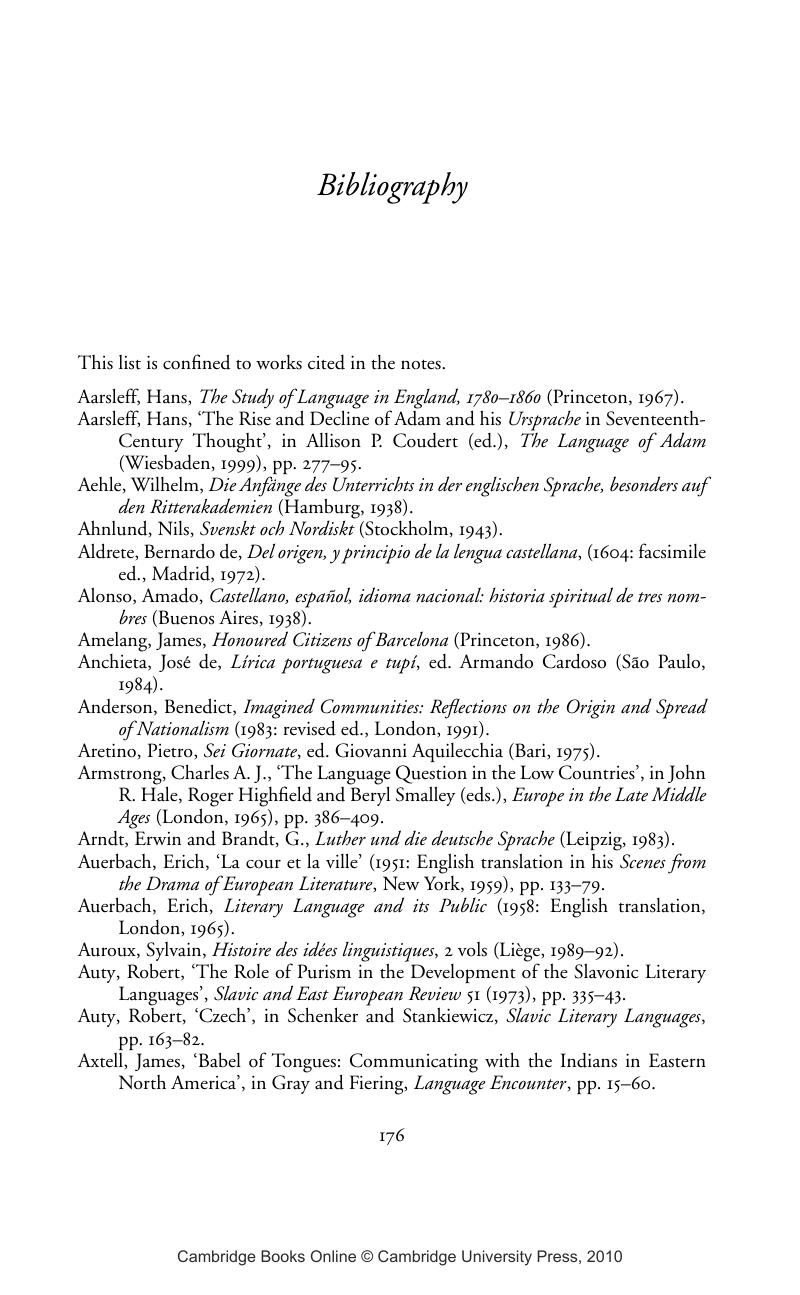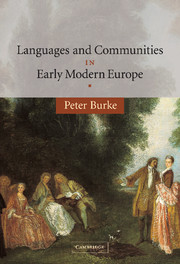Book contents
- Frontmatter
- Contents
- Acknowledgements
- Chronology 1450–1794
- Prologue: communities and domains
- 1 ‘Speak, that I may see thee’: the discovery of language in early modern Europe
- 2 Latin: a language in search of a community
- 3 Vernaculars in competition
- 4 Standardizing languages
- 5 Mixing languages
- 6 Purifying languages
- Epilogue: languages and nations
- Appendix: languages in Europe 1450–1789
- Bibliography
- Index
- References
Bibliography
Published online by Cambridge University Press: 07 December 2009
- Frontmatter
- Contents
- Acknowledgements
- Chronology 1450–1794
- Prologue: communities and domains
- 1 ‘Speak, that I may see thee’: the discovery of language in early modern Europe
- 2 Latin: a language in search of a community
- 3 Vernaculars in competition
- 4 Standardizing languages
- 5 Mixing languages
- 6 Purifying languages
- Epilogue: languages and nations
- Appendix: languages in Europe 1450–1789
- Bibliography
- Index
- References
Summary

- Type
- Chapter
- Information
- Languages and Communities in Early Modern Europe , pp. 176 - 199Publisher: Cambridge University PressPrint publication year: 2004



